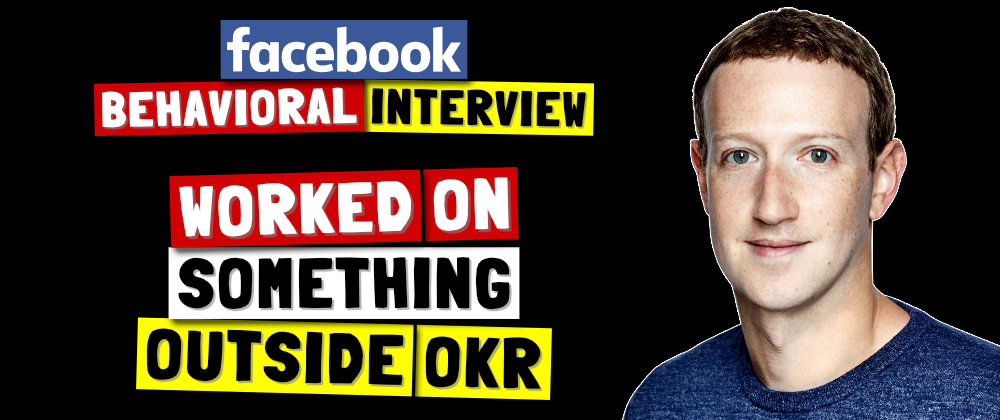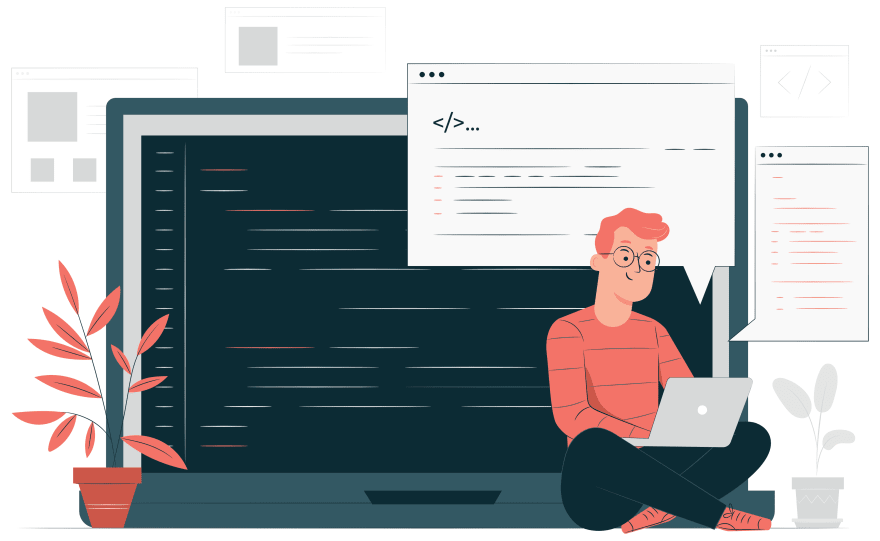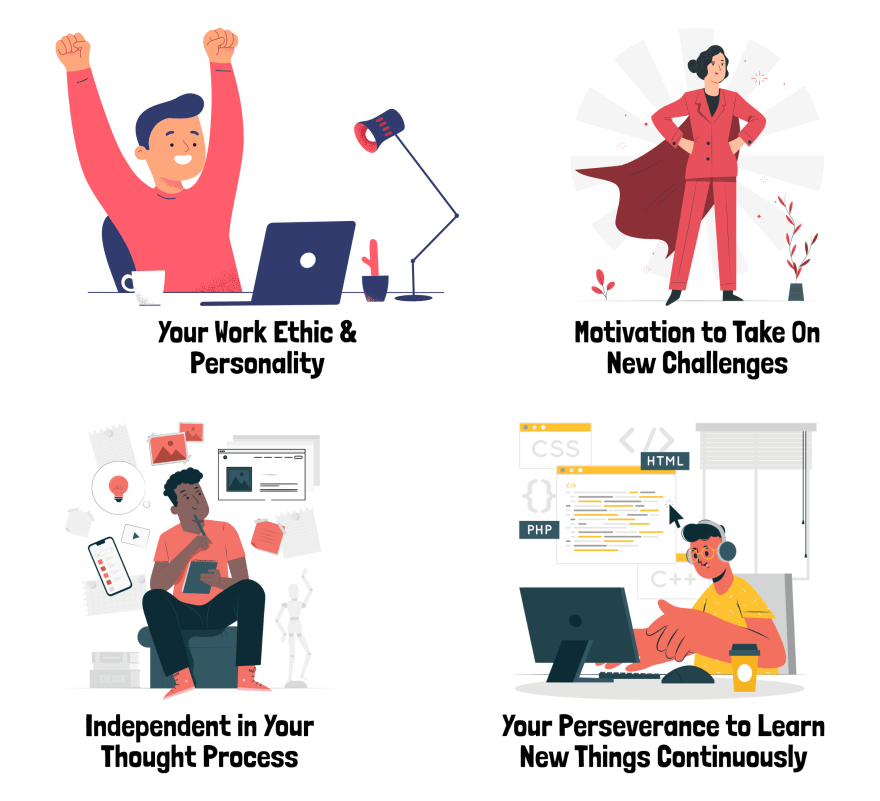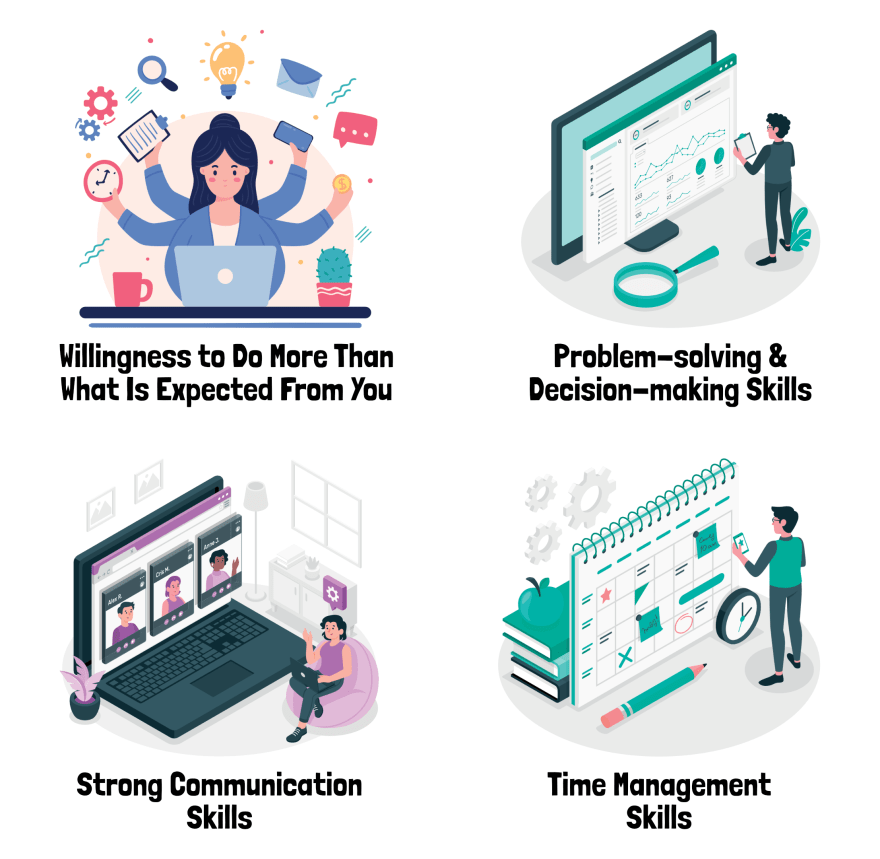Before we discuss this question, let us recap what the Behavioral Interview Round at Facebook is.
Behavioral Interview Round is also known as the Jedi Interview round at Facebook.
It is about you and your history, your résumé, and your motivation.
The purpose of this interview is to assess whether the candidate will thrive in Facebook's peer-to-peer, minimal process, and unstructured engineering organization.
For Software Engineers, the behavioral interview is actually part behavioral and part coding. The coding part is a shorter version of the usual coding interviews and is included to supplement the other two coding interviews to get an additional coding signal.
Tips & Tricks to effectively prepare for Behavioral Interviews
Know yourself! Take the time to review your résumé, as the interviewer will almost certainly ask about key events in your work history.
Have concrete examples or anecdotes to support each of the questions.
-
Familiarize yourself with Facebook's mission statement and its five core values:
- Be Bold
- Focus on Impact
- Move Fast
- Be Open
- Build Social Value
Be yourself! Be open and honest about your successes and failures.
Be humble and focus on teamwork, leadership, and mentorship qualities.
Now, let us review how to effectively answer this question.
Question: Tell Me About A Time You Worked On Something Outside Your OKR
Video Explanation with Evaluation Criteria, Response Framework, Tips & Tricks, Sample Answer (Example), and a Special Case of "Don't Have Any Work Experience".
"Tell me about a time when you worked on something outside your OKR" is a popular open-ended question asked in behavioral interviews.
OKR stands for Objectives and Key Results, which is a goal-setting framework for defining and tracking objectives and their outcomes.
Interviewers also tend to ask this famous question in the following ways:
- Tell me about a time when you went above and beyond.
- Tell me about a time when you exceeded your coworkers' or manager's expectations.
- Describe a time you went beyond the expectations of a customer.
- Have you ever exceeded expectations in one of your previous jobs?
- Have you ever worked on a side-project at your workplace?
Evaluation Criteria
To grow in Software Engineering careers, employers expect developers to exceed expectations for promotions to the next level. By this question, the interviewer is trying to assess your:
- Work ethic,
- Personality, and
- Motivation to take on new challenges with a positive attitude.
They are trying to understand your ability to be proactive and your perseverance to learn new things continuously. Employers want to know if you are independent in your thought process and have the willingness to do more than what is expected from you.
They are also evaluating your:
- Communication,
- Time management,
- Problem-solving, and
- Decision-making skills.
Response Framework
Our advice is to pick a compelling and honest story that can articulate a real-life experience where you worked on a project outside your OKRs.
Describe the situation, explain the project, and elaborate on why you believed this would benefit your team and company. For example:
- While working on your current OKRs, you found a gap in a client library, for which you published an update that benefited multiple teams in your company.
- You created code review guidelines for your company.
- You collaborated with the recruiting team and hiring committees to improve your company's interview process.
Explain to the interviewer how you evaluated and executed your plan of action. Focus on your problem-solving and decision-making skills. Also, show how you communicated the updates to your manager and other stakeholders to keep them well informed.
Finally, express how the outcome and the impact were beneficial to your team and company. Also, explain the learnings you took from this situation and how they helped you become a better engineer.
Tips & Tricks
Here are some tips and tricks that will help you effectively prepare this question for the behavioral interview.
-
Use a compelling story that is honest and believable.
- It is most desirable to describe a real-life example to the interviewer to show that you have actually worked on something outside your OKR and not just talk about a hypothetical situation.
Always remain calm, composed, and confident while answering this question.
-
Do not sugarcoat your answer with irrelevant details.
- Spend more time talking about the project that you worked on outside your assigned goals.
Focus on the business impact that you had on your company or team.
Show that you proactively communicated the updates to all the key stakeholders to keep them well informed.
-
The biggest way to mess up answering this question is by simply saying no to the interviewer.
- Instead, try to use a real experience from your college or day-to-day life where you went above and beyond.
Prepare the response for this question beforehand, as it will be tough to structure your answer on the spot during the interview.
Do not memorize the answer as it should come naturally, and you should sound confident to the interviewer.
Sample Answer (Example)
Here is Monica. She is currently working as a Software Engineer at a major technology company. She is interviewing for the role of Senior Software Engineer at Facebook.
🎧 Listen to her response to this question in this YouTube Video
Special Case: Don't Have Any Work Experience
It may be the case that you don't have any work experience. New Grads and entry-level software engineers usually fall under this category.
If you are in such a situation, do not end your answer by simply saying no to the interviewer. Instead, try to use a real experience from your college or everyday life where you went above and beyond. For example:
- As a Teaching Assistant, you exceeded your professor's expectations by effectively teaching a few classes in his absence.
- For a course project, you went above and beyond by doing additional analysis, which was outside the project's scope.
This will help the interviewer evaluate you on the following attributes mentioned earlier:
- Your work ethic and personality,
- Motivation to take on new challenges with a positive attitude,
- Enthusiasm to learn new things,
- Communication skills,
- Problem-solving and decision-making skills, and
- Willingness to do more than what is expected from you.
Preparation Material
Learn more about the Evaluation Criteria, Response Framework, Tips & Tricks, and Sample Answers (Examples) to effectively prepare and answer these top questions asked in the Behavioral Interviews at Facebook. Certain special cases are also discussed which are usually faced by the candidates during these interviews.
⬇️ Detailed Notes on Top Facebook Behavioral Interview Questions - Part 2
Cracking the Facebook Behavioral Interview
If you have not read our first article on Top Facebook Behavioral Interview Questions, we recommend reading it by clicking the below link:

✅ Top Facebook Behavioral Interview Questions (Part 1) | Facebook Jedi Interview Round 🔥
The Interview Sage ・ May 15 ・ 9 min read
Cracking the Facebook System Design Interview
In case if you have not read our series on Cracking the Facebook System Design Interview, we recommend reading it by clicking the below link:

Top Facebook System Design Interview Questions (Part 1) | Facebook Pirate Interview Round
The Interview Sage ・ Jan 4 ・ 4 min read
Useful Links
✅ Educative.io Unlimited Plan [💰 10% off for first 100 users]
✅ TryExponent.com Membership [💰 Limited Time 10% offer]
✅ Follow for Daily Coding Problem
✅ Join our membership for exclusive benefits
👩💻 Best System Design Interview Course
🚀 Complete SWE Interview Course [💰 Limited Time 10% offer]
🙋♀️ Behavioral Interview Guide [💰 Special Discount]
📚 Recommended Interview Preparation Book (on Amazon)
☕️ Buy us a Coffee at BuyMeACoffee.com/InterviewSage
To stay updated about new posts, Subscribe & Follow Us!
This article is part of the series on Behavioral Interviews at Facebook. So, follow us to get notified when our next article in this series is published. Thanks for reading!
📸 Some images used are from freepik.com: Freepik, pch.vector, vectorjuice, pikisuperstar, rawpixel.com, slidesgo, stories, Upklyak, jcomp, macrovector_official, syarifahbrit, redgreystock




















Oldest comments (4)
Great Post. Thanks for sharing the tips and a sample answer.
@rohitgarg Glad you liked the article! Thanks 🙂
Never, ever heard of OKR and have been a professional developer for 25 years. In my experience, most developers find all of this assessment and management junk to be highly irritating and pointless.
So at the end of the interview, ask the interviewer "How do you determine whether these questions produce better employees?". My guess is they have no such data.